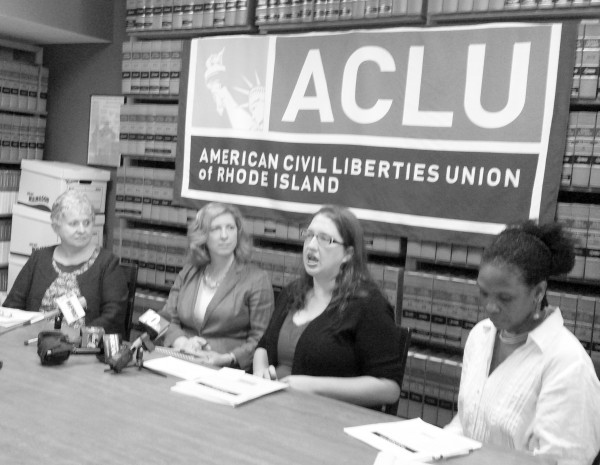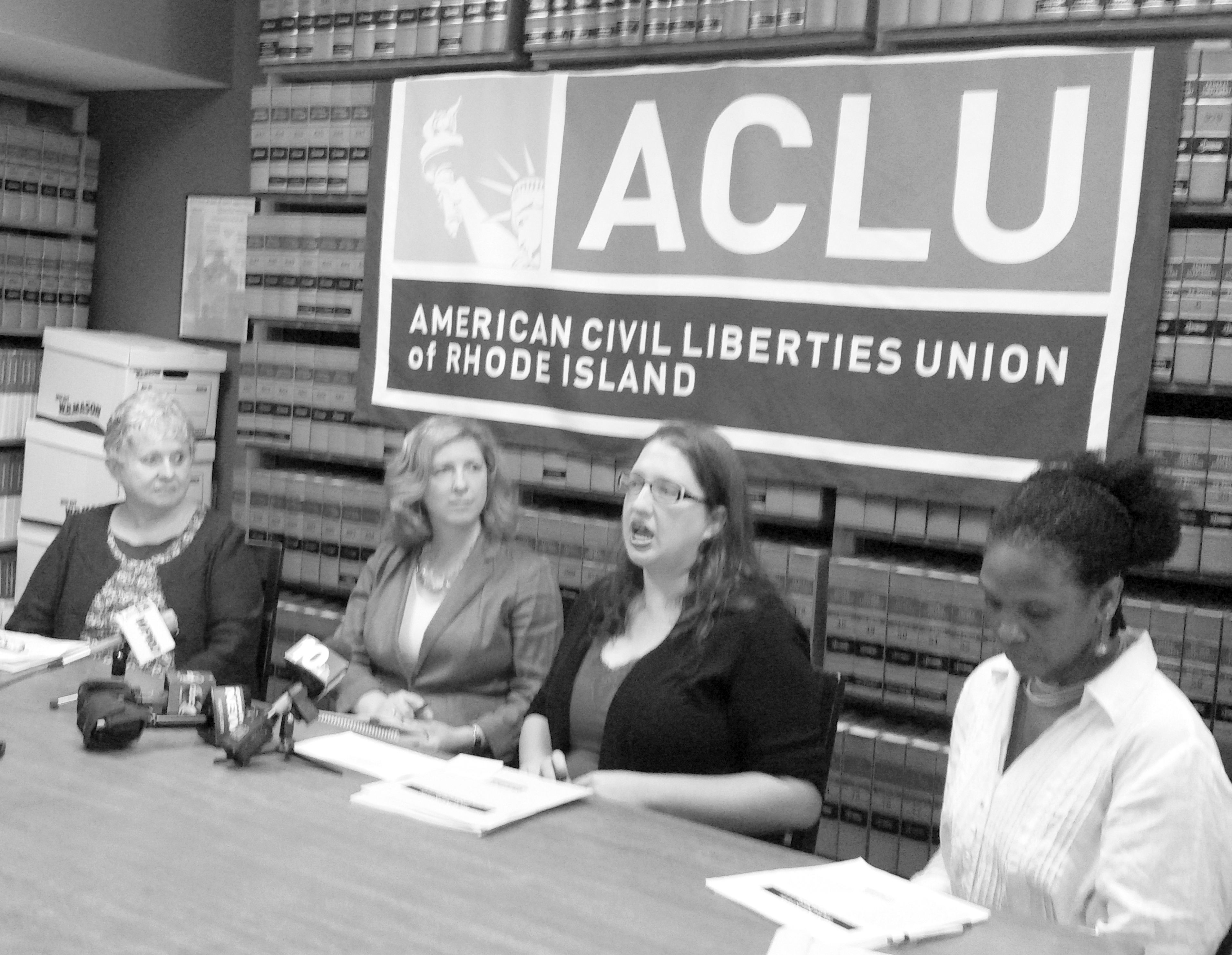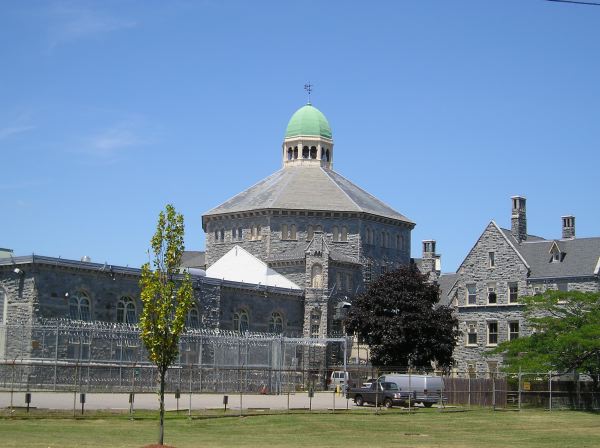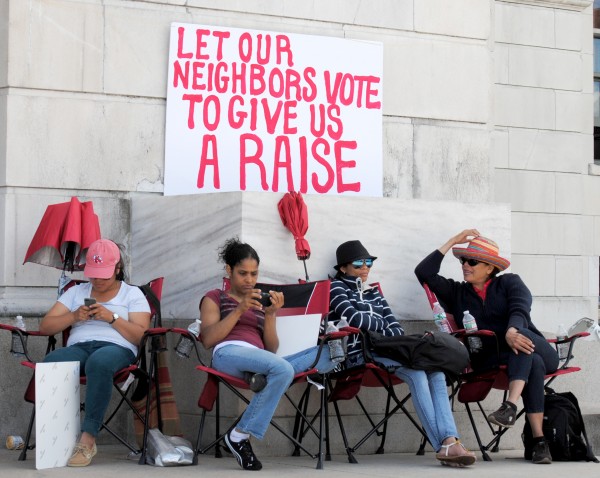 The reported today that racial disparities in suspensions at Rhode Island’s schools had “reached their highest rates in a decade last year,” according to new report from the RI ACLU called Blacklisted: 2013-2014.
The reported today that racial disparities in suspensions at Rhode Island’s schools had “reached their highest rates in a decade last year,” according to new report from the RI ACLU called Blacklisted: 2013-2014.
It found that white students experienced “a ten-year low in suspensions during the 2013-2014 school year” even as the combined suspension rate for Hispanic, black and Native American students was at its highest level.”
The ACLU press release presents the following findings:
Black students were suspended from school more than twice as often as would be expected based on their representation in the student body population. Hispanic students were suspended more than one-and-a-half times as often as expected, the highest rate in a decade, while white students experienced a ten-year low.
Black girls were nearly four times more likely than white girls to be suspended, including for minor, vague offenses like “disorderly conduct” and “disrespect.”
Black elementary school students were suspended at a rate nearly three times the rate expected given their representation in the population, while white elementary school students were suspended just half as often as expected.
The racial disparities in discipline are statewide: 24 school districts and two charter schools suspended black students at rates disproportionately higher than their representation in the student body, while 21 districts and two charter school disproportionately suspended Hispanic students.
Despite an increasing consensus nationwide that suspensions should be reserved as discipline only in very serious circumstances, more than half of all suspensions were issued for “Disorderly Conduct” or “Insubordination/Disrespect.”
This is the third such report from the ACLU in three years, said Hillary Davis, policy associate at the RI ACLU. She is hopeful that legislation introduced in the General Assembly will begin to address the problem. If passed, House Bill 5383 will prevent out of school suspensions for all but the most serious offenses. The bill also specifies that each school district must review its suspensions annually with an eye towards reducing racial disparities.
Jordan Seaberry of the Univocal Legislative Minority Advisory Commission said that our state “cannot deny the relationship between juvenile suspension and adult imprisonment.” We have “allowed a shadow justice system to take place within our schools” and “built a culture of suspensions” that plays into racial biases.
Receiving a suspension increases the likelihood of dropping out of school. “If you have less than a high school diploma,” said Dr. Danni Ritchie, a family practitioner and public health researcher, “it is predictive of your having poor health outcomes.” Having an advanced degree can “increase your life expectancy by about 12 years.”
“Research has shown that children of color, especially African Americans, tend to be seen as older and less innocent and less entitled to some of the conceptions of childhood than… their white counterparts,” said Dr. Ritchie.
Stephanie Geller, policy analyst for RI Kids Count, said that research indicates that being suspended even once by ninth grade “results in a 2-fold rate of dropping out” of school.
Geller would prefer to see schools adopt policies centered on restorative justice, as is currently the case in Central Falls. Geller also wants to make sure that a law passed in 2012 that prohibited schools from suspending students for absenteeism is being enforced.
“Why do so many of us silently assume that so many black kids are insubordinate and therefore unteachable?” asked Dr. Marie Hennedy. Hennedy, a teacher, mother and grandmother, maintained that “students should only be suspended for incredibly dangerous, serious, dangerous reasons.”
Karen Feldman, executive director of Young Voices, said that, “We are not creating school environments that welcome our students in.” If a child is late to school or not fast enough in obeying a teacher’s instructions they are given detention. If they skip detention, they are suspended, said Feldman.
When students are suspended, educators need to fill out forms with a detailed explanation of the student’s offense, said Feldman, adding that “we need to have restorative practices in all our schools.”
“In my world,” said Rev. Donald Anderson, of the Rhode Island Council of Churches, “we have a word for inaction when there is a clear moral imperative to act. That word is sin. And sin has consequences.”
Martha Yaeger of the American Friends Service Committee told a story of encountering “an amazing young woman” at a community organization in the middle of the day.
Wondering why she wasn’t in school, Yaeger asked, “What are you doing here?”
“I got suspended.”
“Why?”
“Cuz my teacher told me to do something that was wrong and I asked her why.”
The “amazing young woman” was sent to the principal’s office and was suspended for a week. While suspended, she received zeroes in all her coursework, setting her “back academically for the rest of the year.”







